Above: Cañon City: Recruiting Teachers by Harnessing Main Street’s Assets / Below: Read the full case study
One out of every seven Colorado students attends public school in a rural district — in small communities where connections between local education, economic development, health, and the environment are undeniable. Rural areas of the state were hit hard by the Great Recession, and recovery in these places has been slower. Access to high-quality education can be a game changer, allowing local residents and systems to demonstrate resilience in the face of evolving economic and social challenges.

READ THE FULL CASE STUDY: Bridges to Collective Vision
To support rural communities, a number of Colorado foundations are currently investing in collective impact initiatives aimed at addressing the root causes of inequity, while others are providing individual grants to organizations and programs tackling specific issues. According to a 2018 report from El Pomar Foundation, 20 percent of foundation giving in 2016 went to rural regions. “While foundation giving continues to increase, there are large disparities between regions and counties,” the report found. For example, “the annual average grant dollars received per capita from 2013 to 2017 in Denver County was $155.70, while Elbert County (a mostly rural area east of Denver and Colorado Springs) received an annual average of $1.78 per capita during the same time frame.”
Both Gates Family Foundation and Wend Ventures share a deep commitment to increasing educational opportunities across the state of Colorado. We also know that targeting resources to students in under-resourced communities can be a profoundly powerful lever for individual and collective advancement. Gates has a long history of investing in the civic infrastructure and economic development of rural communities, and over the past decade we have increased our strategic partnerships with a handful of public school systems in areas beyond the Front Range, including Lake County, Grand Junction, and the Roaring Fork Valley. Through this experience, we have deepened our respect for the unique needs of rural and Western Slope education systems, which present both challenges and opportunities for innovation that carry important lessons for funders and the broader education ecosystem.
With this in mind, in 2018 Gates and Wend launched a joint effort to harness the creative capacity of rural communities to solve problems within their own education systems. With The Civic Canopy as our implementation partner, we supported local groups in Alamosa, Cañon City, and Durango with targeted facilitation, analysis, and strategy development to advance big ideas for their schools, students, and communities at large.
We structured the effort with a few shared beliefs to guide us:
- Local community members are best positioned to understand rural issues deeply and can design the right solutions to the challenges they face.
- Community-led processes don’t have to take forever, if an effort leverages existing groups, networks, and ongoing work.
- Relationships — among community members, across sectors, and between grantees and grantors — are the greatest predictor of an effort’s ability to achieve transformational and long-term change.
We’ve learned a lot along the way, yet each of these guiding beliefs has held true — and each community has taken steps to address the central challenge on which they chose to focus. By the end of our six-month engagement, community and business leaders in Cañon City have developed an ambitious vision to create affordable housing for teachers as part of a broader effort to attract top talent to the city; school leaders and mental health advocates in Durango have strengthened a collaborative effort to support students’ needs inside and outside the classroom; and in Alamosa, out-of-school-time partners have a plan to work with the school district to address students’ social and emotional needs.
The transformational impact of people working in community to advance strategic goals is clear. We hope that this effort and others like it can serve as a case study for funders who aspire to support collective impact or specific issues in rural communities, yet are seeking an initial entry point. Above all else, we have learned that it is possible to gain trust and work towards shared goals when we invite rural communities to build on existing work and local assets, leverage local partners and resources, and follow unexpected twists in the road.
Abigail Schaller Sarah Stücky
Senior Program Officer – Education Associate Program Officer – Education
Gates Family Foundation Wend Ventures



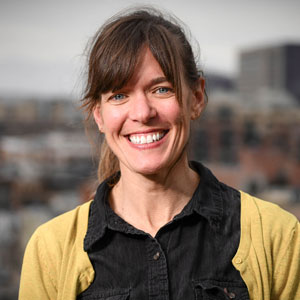
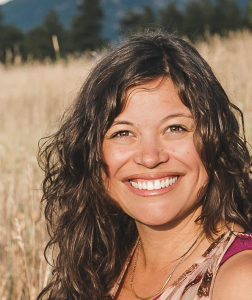
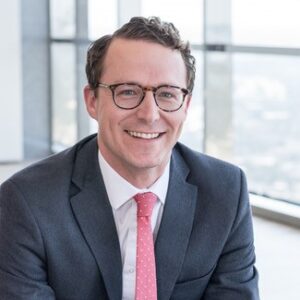

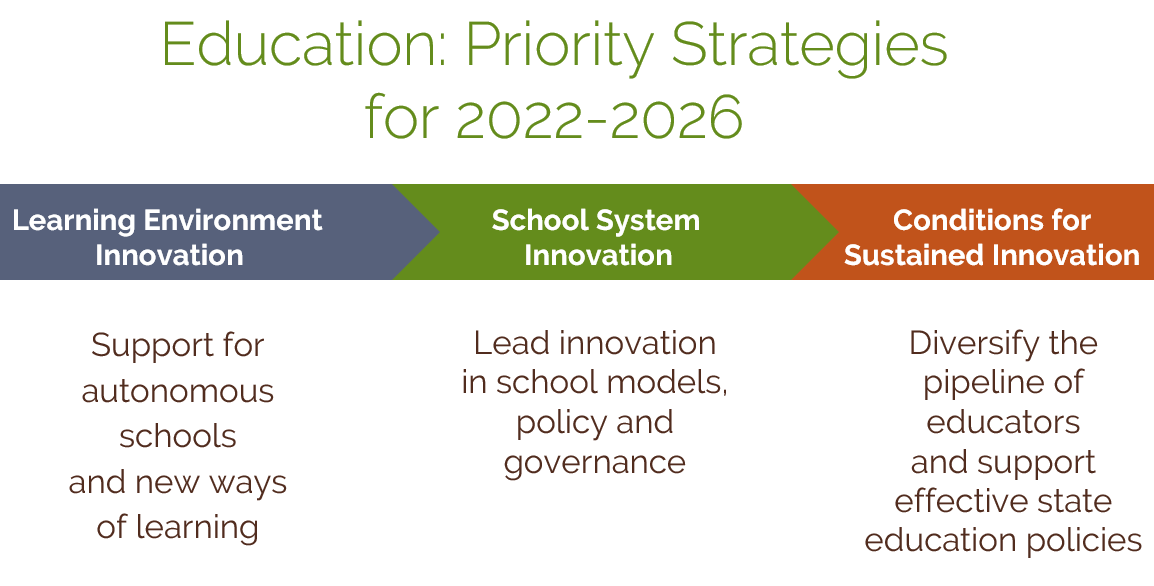
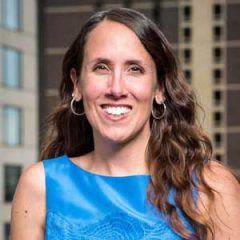
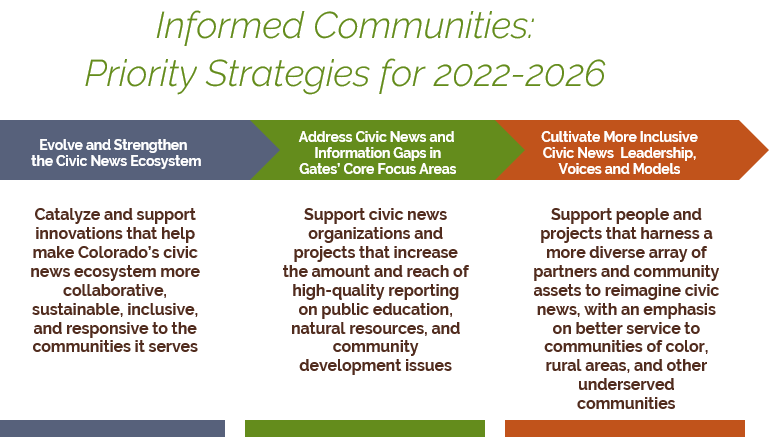
 Finally, also in 2023 a total of $410,956 previously committed by Gates to the
Finally, also in 2023 a total of $410,956 previously committed by Gates to the 
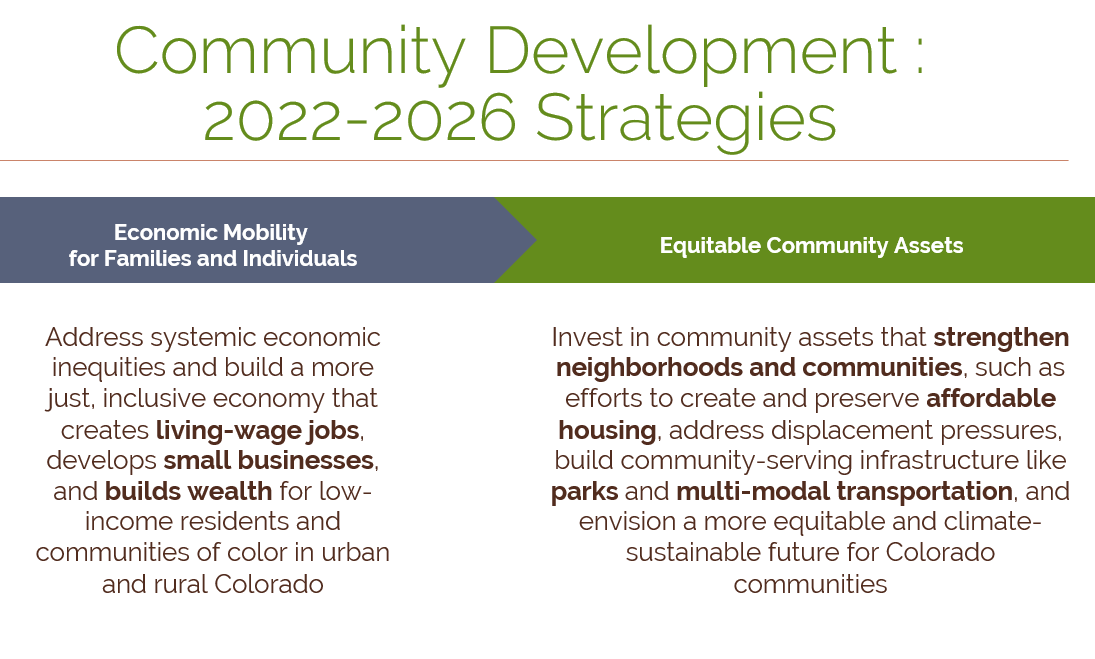

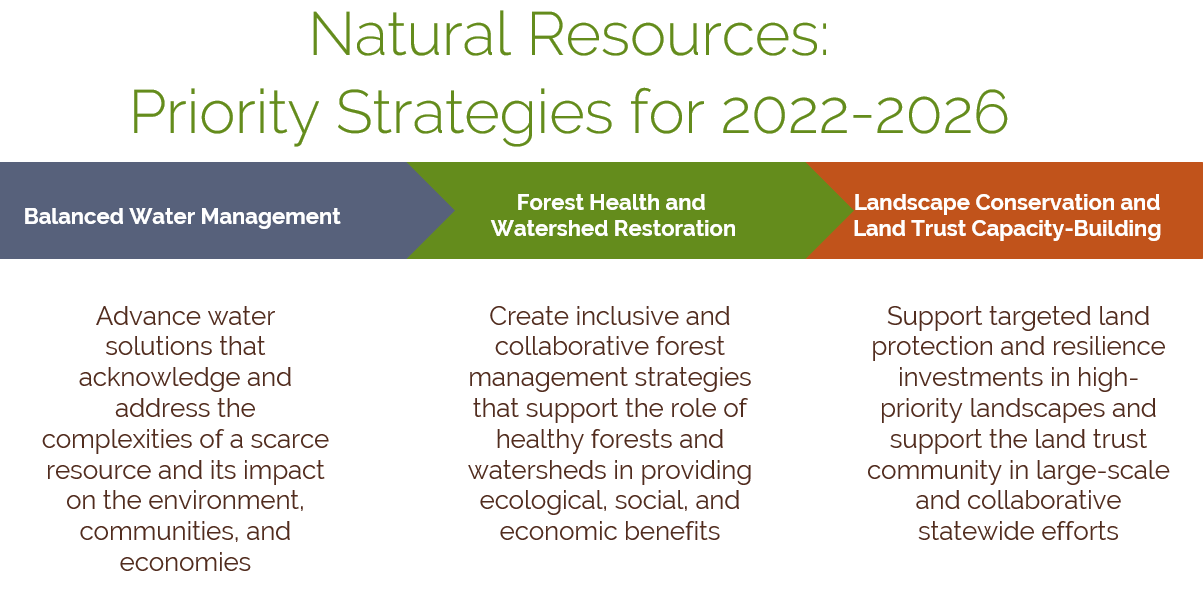
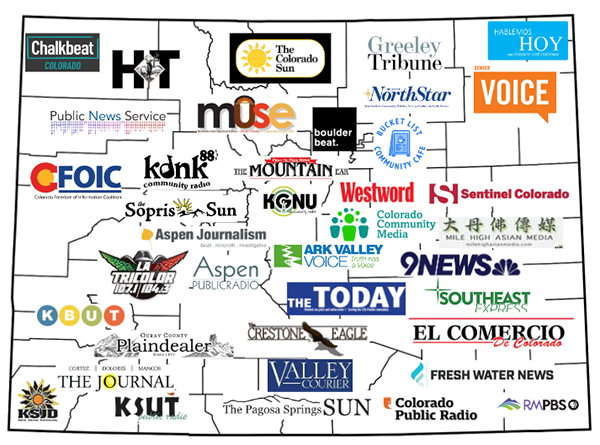 A total of $1,110,956 committed to the
A total of $1,110,956 committed to the 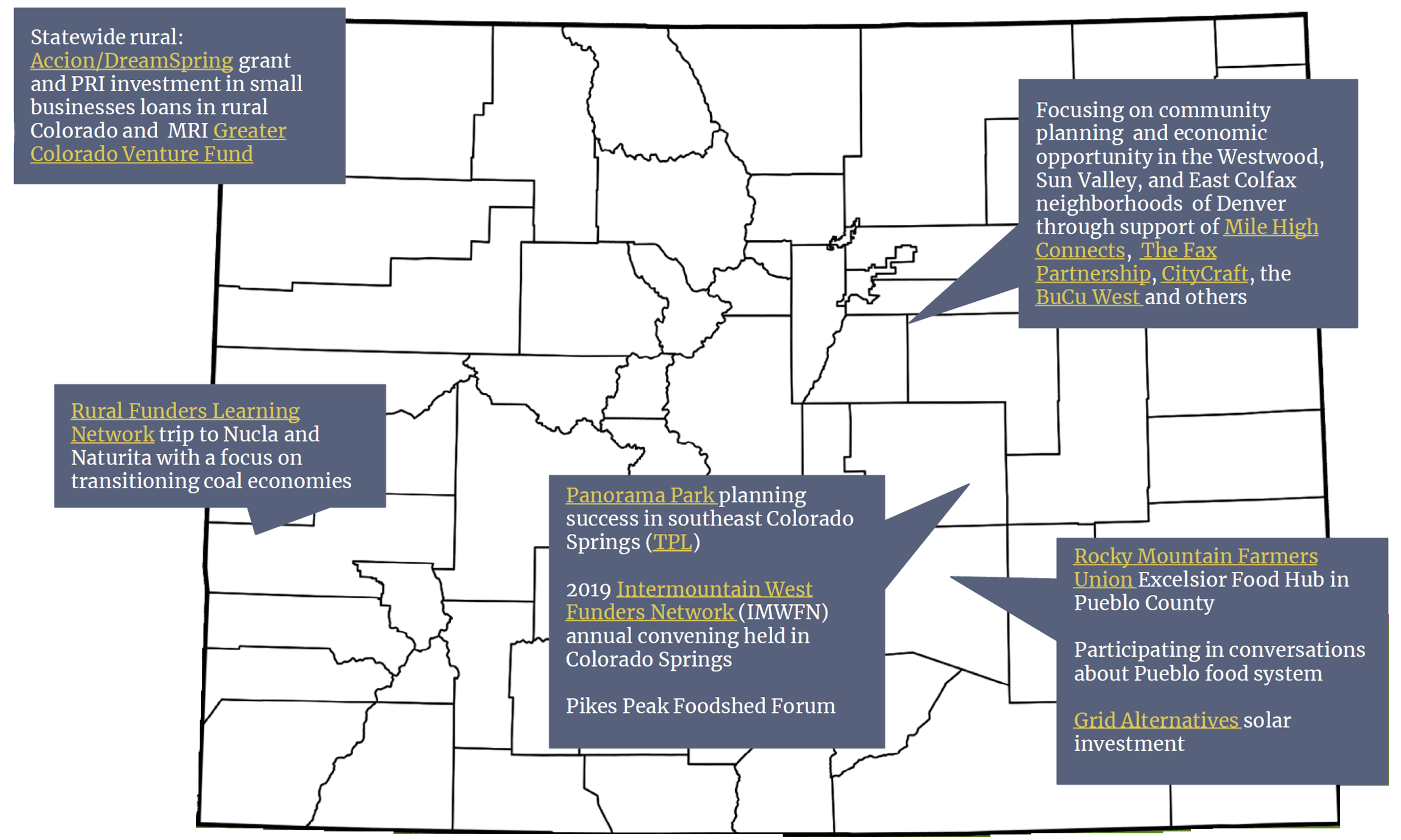 In 2019, the Community Development program committed $932,500 in strategic grants to 13 organizations and $465,000 in responsive capital grants to 12 organizations. New impact investments supporting vibrant communities in 2019 included a $500,000 MRI to
In 2019, the Community Development program committed $932,500 in strategic grants to 13 organizations and $465,000 in responsive capital grants to 12 organizations. New impact investments supporting vibrant communities in 2019 included a $500,000 MRI to 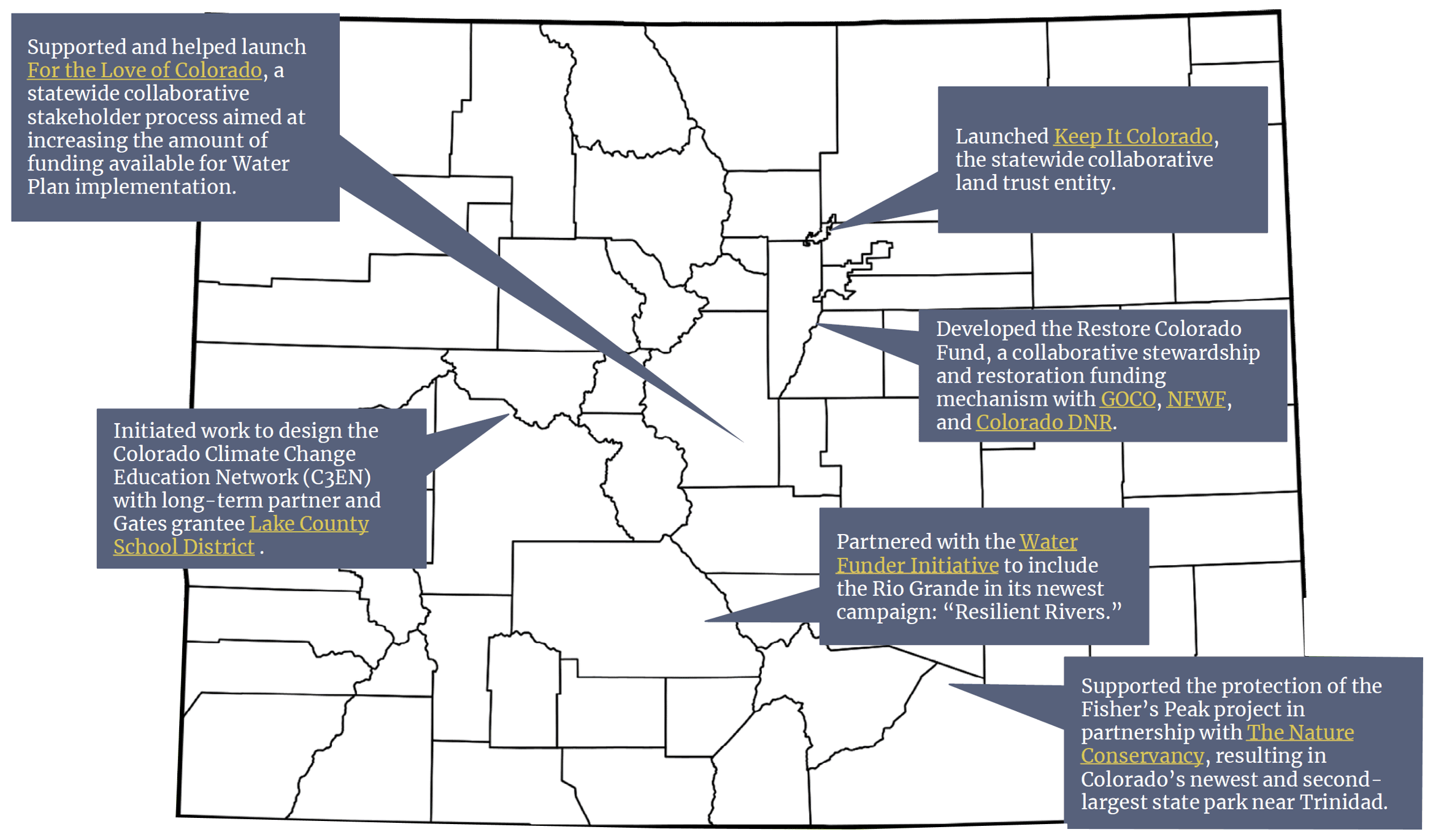 Our Focus Landscapes initiative, a key element of our Natural Resources program, underwent a comprehensive review, revision, and re-launch in 2019. This initiative was launched in 2011 to help Colorado achieve landscape-scale conservation through the protection of private lands in specific geographies. A great deal of progress was made in North Park, southeast Colorado, and the San Luis Valley, resulting in more than 200,000 acres of farm and ranch lands conserved, along with their associated ecological values. The strategic review process was done in close partnership with the land trust organizations representing those geographies, providing lessons-learned and an exploration of emerging opportunities. The revised Focus Landscapes initiative will first focus on two geographies:
Our Focus Landscapes initiative, a key element of our Natural Resources program, underwent a comprehensive review, revision, and re-launch in 2019. This initiative was launched in 2011 to help Colorado achieve landscape-scale conservation through the protection of private lands in specific geographies. A great deal of progress was made in North Park, southeast Colorado, and the San Luis Valley, resulting in more than 200,000 acres of farm and ranch lands conserved, along with their associated ecological values. The strategic review process was done in close partnership with the land trust organizations representing those geographies, providing lessons-learned and an exploration of emerging opportunities. The revised Focus Landscapes initiative will first focus on two geographies: 